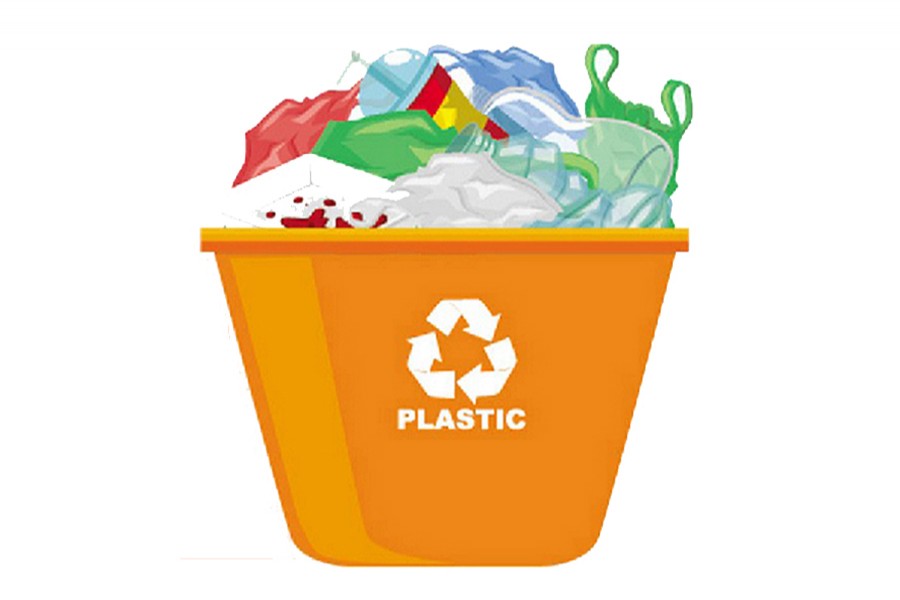Plastic waste-recycling industry is entitled to get VAT waiver at every stage of processing as the revenue board earlier offered the fiscal incentive to protect the environment from growing aggression of the hazardous chemical components.
The exemption is applicable to different stages of recycling, from grains (HS code 39.02) to plastic chips or uneven pieces of plastics. Production of finished goods will not, however, get it.
The National Board of Revenue (NBR) has issued a clarification in this regard recently, following a confusion created at the field-level VAT offices over the waiver given on June 01 in 2022, and a demand of Pran-RFL Group in this regard.
According to the UN Environment Programme, globally some 400 million tonnes of plastic wastes are produced every year.
Approximately, 36 per cent of all plastics produced are used in packaging, including single-use plastic products for food and beverage containers, and 85 per cent of which end up in landfills or as unregulated waste, it said.
Talking to the FE, a senior VAT official said production of uneven or small parts of plastic chips from plastic waste would enjoy the exemptions as intermediate goods.
The official made it clear that production of finished goods from plastic waste is not, however, entitled to get the waiver.
Industries collect plastic waste, colour those and select on the basis of its category. The recycling industry washes those and cuts them into small uneven pieces like chips. It is treated as intermediate goods for production of plastic grains. Recycling industries produce plastic grains by melting the uneven pieces by using machines.
On June 1 in 2022, the NBR waived the VAT on distribution of plastic waste and production of plastic grains from plastic waste.
Md Kamrul Hassan, Executive Director of TEL Plastic, a wing of Pran-RFL group, said the plastic recycling industries are contributing to protect the environment by recycling and reusing the plastic wastes.
"We have demanded waiver of taxes at every stage up to sales of finished goods to encourage the industry," he added.
Many people, including small collectors to processors, are involved with the process, he added.
However, neither incentives nor awards or interest-free loans are provided for such green production units in this sector, which are being provided in many other countries, he added.
Currently, around 50 per cent of the plastic waste is being recycled to other products in Bangladesh, he added.
Pran-RFL started the plastic recycling industry in 2012. Currently, there are around 3,000 plastic manufacturing companies in Bangladesh. Every year, those industries recycle some 30,000 tonnes of waste.
A World Bank report said Bangladesh was among one of the top countries in the world in 2021 in terms of plastic pollution for its poor waste management system.
The annual per capita plastic consumption in Dhaka alone is 22.25-kilogramme. The number is more than three times the national average for urban areas.
In a presentation, prepared by Mr Hassan, showed three-tier challenges of plastic waste recycling including collection, sorting and investment.
Usually, street collectors are the main source of plastic waste, and it is difficult to sort out as it is mixed up with other wastes.
Pran-RFL Group invested Tk 3.0 billion in the plastic waste recycling industry.


